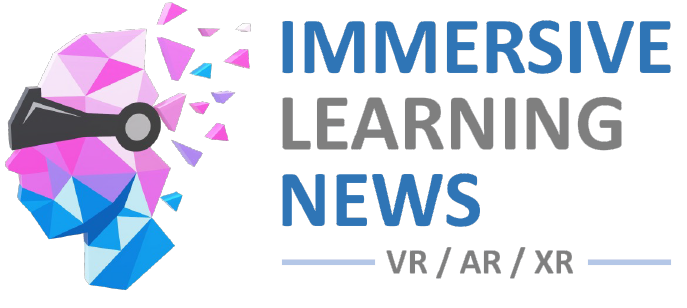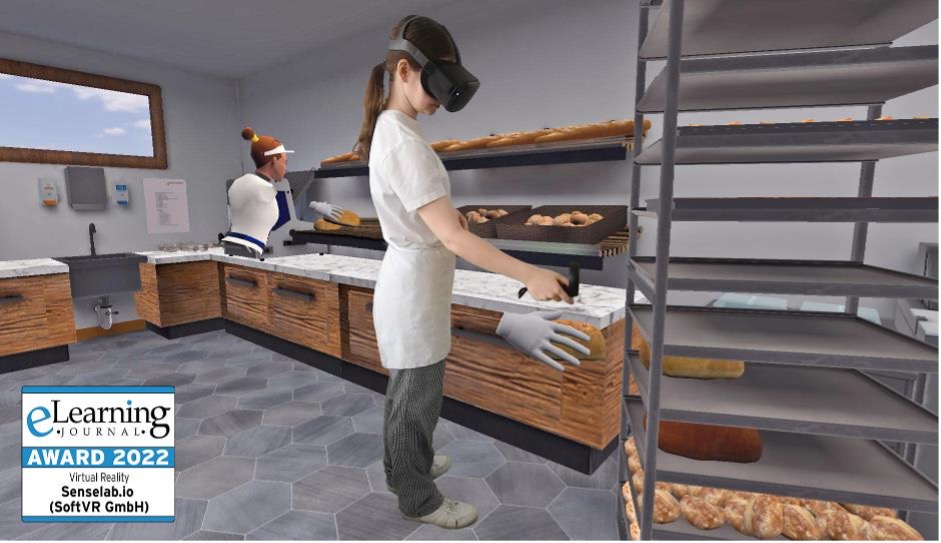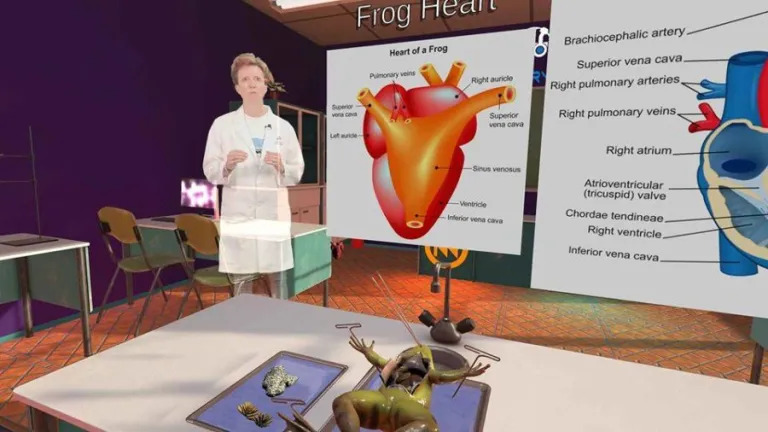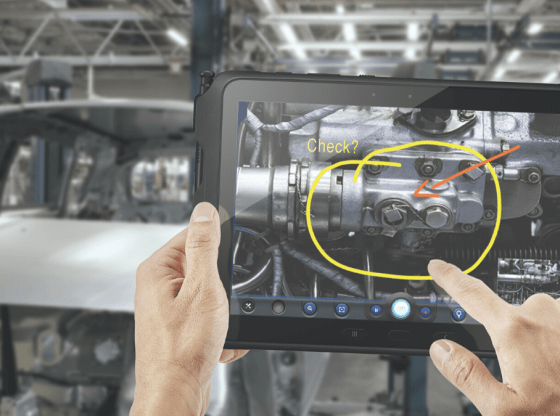How a project of the Erfurt Chamber of Skilled Crafts in Germany modernizes training in the bakery and confectionary industry
Senselab.io wins eLearning AWARD 2022 for developing DigiBacK VR-Training – An application for trainees in the bakery and confectionary industry
Digi-BacK is a project initiated by the Erfurt Chamber of Skilled Crafts to promote the bakery and confectionery trades by modernizing its training. Through an iterative development process, a virtual learning world has been developed by Senselab.io. In it, hands-on learning situations prepare trainees for real-world scenarios. The outstanding collaboration effort has thus been awarded the eLearning AWARD 2022 in the virtual reality category issued annually by the eLearning Journal.
In late 2020, the Erfurt Chamber of Skilled Crafts commissioned Cologne-based VR specialist Senselab.io to develop an interactive VR learning application that would update their courses for bakers, pastry chefs and specialized salespersons. Conceptual support for the ongoing project is provided by the Immersive Learning Lab of the University of Applied Sciences Erfurt. In addition, experts from the bakery and confectionery trades are supporting the project with their technical expertise. The interactive VR application features teaching and learning scenarios for the topics of occupational safety, hygiene regulations and customer communication. Funded by the Federal Ministry of Education and Research, this is probably the first project in Germany to specifically address the use of virtual reality in the baking and confectionery trades.
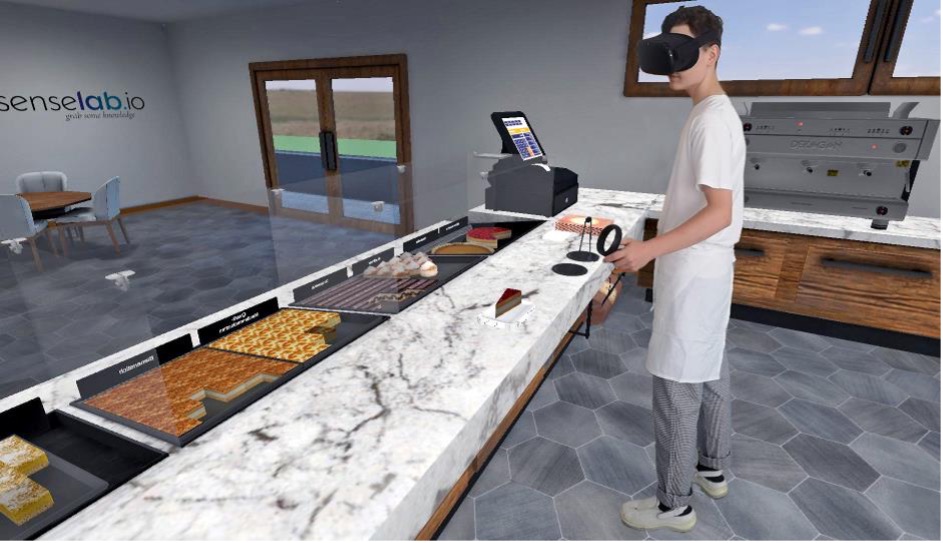
Foto: Handwerkskammer Erfurt / senselab.io
A trainee on the bakery’s sales floor.
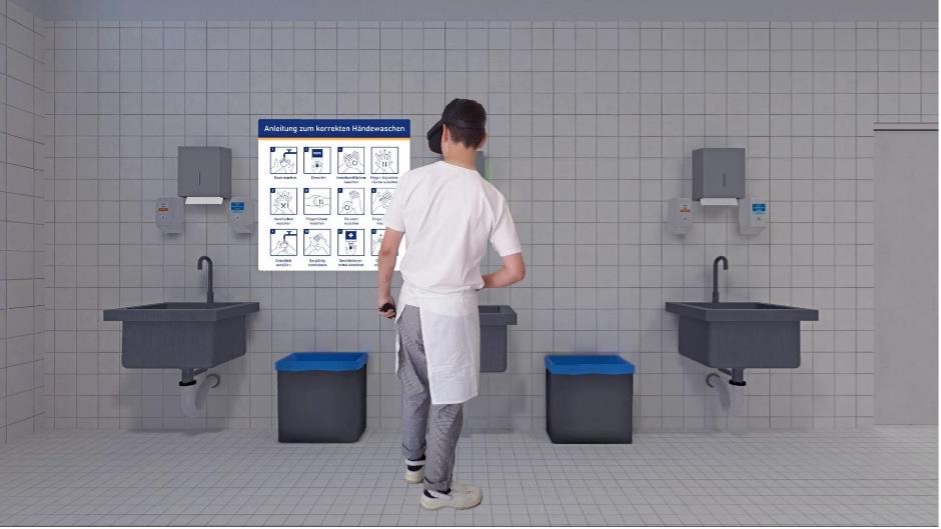
Foto: Handwerkskammer Erfurt / Senselab.io
A trainee learning and simulating how to correctly wash his hands.
The application lets the user enter a virtual bakery, which can be explored and while doing so, the user discovers various tasks at specific locations. Such tasks are, for example, the cleaning of work surfaces, the correct handling of eggs, or the sorting and presentation of baked goods on the sales floor. Each work step is explained beforehand and can then be practiced by the learners through their actions in the VR environment. A quiz at the end of each task provides direct feedback.
One of the application’s special features is multiplayer support, which allows to enter a learning session as a team. All the tasks and quizzes set can be completed by several participants working together making the experience more playful. Participants can choose from a range of different avatars to appear as in the VR application.
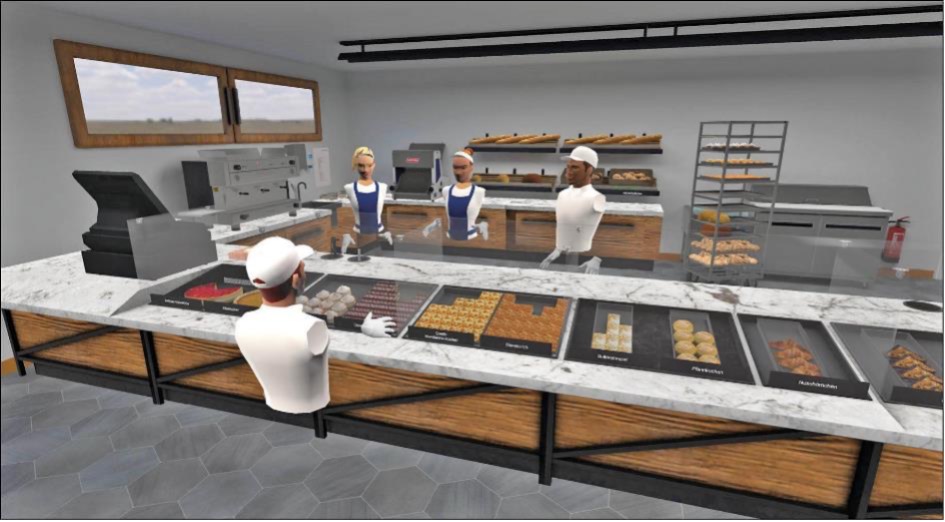
Foto: Handwerkskammer Erfurt / Senselab.io
Multiple users can be a lot of fun.
The vocational training center of the Erfurt Chamber of Skilled Crafts implemented the early versions of the VR application in their training to conduct user testing with the target group. The feedback is continuously evaluated so that the strengths and weaknesses of the application can be identified at an early stage and used to achieve continuous improvement.
For instance, the trainees find the realistic environment of the VR application to be a particular strength. Care is taken by the Senselab.io development team to ensure that all the rooms that can be found in a real bakery are represented in the virtual world. The Digi-BacK VR application thus includes a salesroom, a bakery, changing rooms, a warehouse for receiving goods and cold storage rooms. This ensures that the learners can complete the various tasks under realistic conditions.
„The Digi-BacK project aims to increase the attractiveness of the skilled trades, especially the bakery and confectionery trades. This is achieved by linking digital technologies and the art of craftsmanship. The Digi-BacK VR application makes a special contribution by reworking and presenting previously existing learning content,“ says Stefanie Müller from the Erfurt Chamber of Skilled Crafts.
The future of such projects looks promising after Digi-BacK VR-Training was awarded the eLearning AWARD 2022. Every year, the eLearning Journal selects projects that outstandingly use digital media to educate people. Thus, the state of the art in the industry is made visible and innovation in education is being honored. Hopefully, in the coming years, we will see more VR projects in their nominations.
Quelle:
Senselab.io
Foto: A trainee learns how to sort bread on the sales floor. Another participant in the background is helping her. – Handwerkskammer Erfurt / senselab.io
